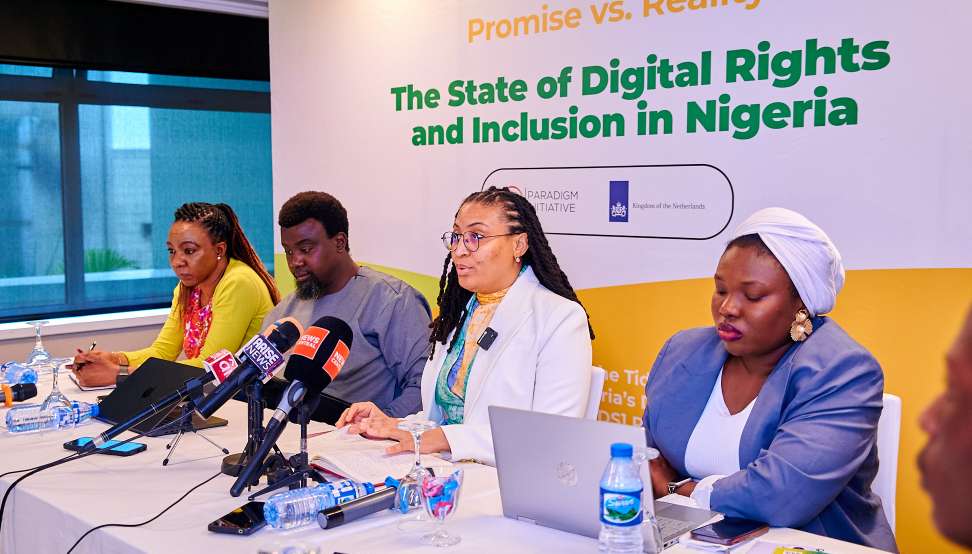Nation
Paradigm Initiative raises alarm over exposure of Nigerians’ data online

Paradigm Initiative (PIN), a digital rights advocacy organisation, has raised serious concerns about the safety of Nigerian citizens’ personal data online, warning that information belonging even to top government officials is available for sale at cheap rates.
At a media briefing in Abuja on Friday, PIN’s Executive Director, ‘Gbenga Sesan, said data leaks have persisted for at least three years without adequate government response.
“The data security problem is serious. Data belonging to the President, Vice President, National Security Adviser, top military officials, ministers and other senior government officials are also available online to anyone who knows their full name and date of birth,” Sesan said.
While acknowledging Nigeria’s progress in technology, he lamented that digital rights such as privacy, online protection, freedom of expression and access to information are increasingly under threat. He listed arbitrary internet disruptions, weak enforcement of data protection, surveillance, and inconsistent policies as challenges eroding public trust and undermining digital growth.
The Executive Director expressed appreciation to international partners, including the Embassy of the Kingdom of the Netherlands, Ford Foundation, Luminate, Wellspring Philanthropic Fund, Mott Foundation, Open Society Foundations (OSF), International Development Research Centre (IDRC), and the Internet Society Foundation, for sustaining support at a time when many non-profits face funding difficulties.
Sesan pointed to the organisation’s “Stemming the Tide of Abuse in Nigeria’s Digital Space (STANDS)” project as instrumental in driving change. The initiative, he said, combines litigation, advocacy, evidence-building and capacity strengthening to protect citizens and influence digital policy. Among its achievements is the Ikot Ekpene Declaration, a guide for judicial officers on integrating digital rights into their rulings, as well as training programmes for law enforcement officers on digital security.
Also speaking, PIN’s Chief Operating Officer, Nnenna Paul-Ugochukwu, highlighted the organisation’s broader impact, including scholarships for young Nigerians, digital rights reports, toolkits, and award-winning short films aimed at awareness. She said the organisation continues to transform lives across the continent.
Khadijah El-Usman, Senior Officer, Programmes, Anglophone West Africa, presented highlights of the 2024 Nigeria Londa Report, which evaluates the state of digital rights and inclusion in line with the African Commission on Human and People’s Rights (ACHPR) Declaration of Principles.
The report scored Nigeria 36 out of 60, classifying it as “moderately compliant.” It assessed internet access and affordability, freedom of expression, protection against arbitrary arrests, data protection and privacy, transparency, artificial intelligence, and inclusion of vulnerable groups such as children and persons with disabilities.
“For Nigeria in 2024, this assessment is not just a research exercise. It directly reflects how over 200 million citizens experience their right to connect, speak, to be protected online and to participate in the digital economy,” El-Usman said.
PIN stressed that despite progress, millions of Nigerians, particularly women, rural dwellers, and persons with disabilities, continue to face barriers of affordability, access, and digital literacy that limit meaningful online participation.








